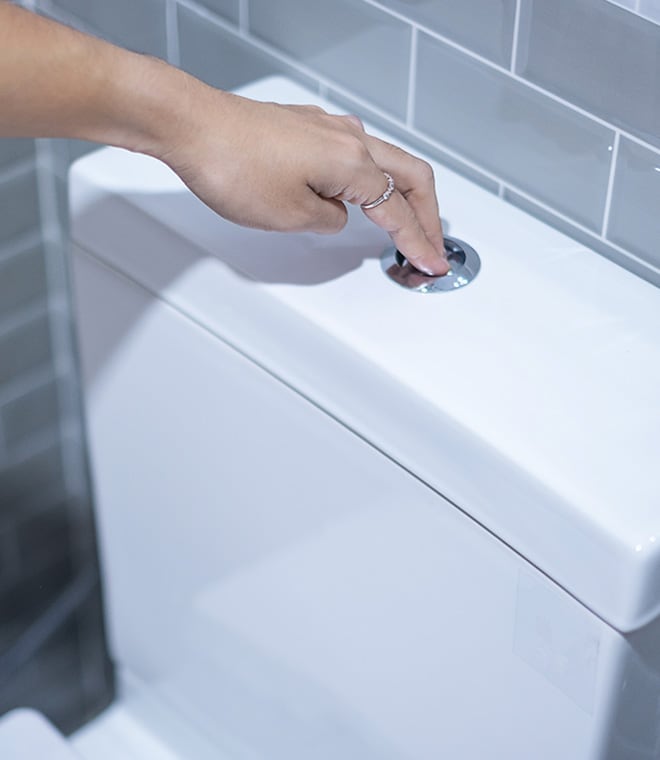Health
Do you need antibiotics for a bladder infection?
By Sadie Crouch, RN, BSN Jan 28, 2025 • 5 min
If you've ever had a bladder infection, which is also known as cystitis, you may likely remember the discomfort that you felt. A bladder infection is the most common type of urinary tract infection (UTI), and the symptoms can range from just unpleasant to severe in nature. UTI treatment typically involves taking antibiotics prescribed by a healthcare provider.
What causes a UTI?
There are normal amounts of bacteria on the skin and rectum. However, a UTI can occur when the bacteria enters the bladder via the urethra, the tube through which urine leaves the body. There are certain factors that can increase the risk of getting a UTI including structural issues in the urinary tract, poor or improper hygiene, sexual activity and pregnancy.
What are the symptoms of a UTI?
When bacteria enters the bladder, the body responds the same way it would respond to other infections, which can include swelling and irritation involving the affected area. With a UTI, symptoms often include burning or pain when you pee, an urge to pee while only producing a few drops, foul-smelling urine, and even the loss of bladder control.
Can you get rid of a UTI without antibiotics?
Treatment of UTIs typically involves the use of antibiotics. To prevent symptoms from getting worse, it is important to seek medical attention promptly. If left untreated, the infection may spread up the urinary tract and into the kidneys. If this progresses, a life-threatening blood infection called sepsis can occur.
What antibiotics treat a UTI?
Healthcare providers will consider several factors when prescribing antibiotics for UTI. They may ask for a urine sample to identify the bacteria causing the infection. A healthcare provider will also consider the person's medical history, including allergies and past antibiotic usage, as well as anatomy. If the infection occurs in an otherwise healthy person, it may be a simple infection. A more complex infection may be the case if the person is pregnant, has an abnormal urinary anatomy, or has a history of recurrent UTIs.
Which specific antibiotics are used for UTIs?
Some antibiotics commonly used to treat simple UTIs include:
- Trimethoprim-sulfamethoxazole (Bactrim, Bactrim DS, Sulfatrim)
- Nitrofurantoin (Macrobid, Macrodantin)
- Fosfomycin (Monurol)
Your healthcare provider may select other antibiotics based on your medical history and current UTI case. For example, doxycycline (tetracycyline) is an antibiotic that can be used for more complicated UTIs, typically those experienced by males.
There is also a group of penicillin and penicillin-like antibiotics, such as amoxicillin-clavulanate (Augmentin) and cephalexin (Keflex), that are used to treat UTIs. However, these medications may be avoided in some people due to risk of allergies.
Another antibiotic that may be considered is ciprofloxacin (Cipro), which can effectively treat more complicated UTIs such as when the bacteria involved is resistant to other antibiotics or when the patient is unable to tolerate the more common antibiotic options. However, there are potential side effects with this antibiotic, such as tendon rupture.
Other antibiotics, such as azithromycin (Zithromax, Z-Pak) and clindamycin (Cleocin), are often used to treat different bacterial infections effectively. However, these medications are not considered standard care for the treatment of a UTI.
Before prescribing an antibiotic for a UTI, your healthcare provider will take several factors into consideration. Always follow your healthcare provider’s instructions when taking antibiotics. There are no over-the-counter antibiotics for a UTI. They require a prescription.
Is there a UTI medicine available over the counter?
Although antibiotics are only available when prescribed by a healthcare provider, there are over-the-counter (OTC) options such as phenazopyridine (including Azo and Uristat) that can provide temporary relief of symptoms often associated with UTIs, such as pain or discomfort while urinating. It’s important to remember that although OTC options may help ease symptoms of a UTI, they won’t make the infection go away. Also, you should not take an OTC medication for a UTI without first talking to your healthcare provider.
What should you do if you think you have a UTI?
The most important thing to do when experiencing symptoms of a UTI is to contact your healthcare provider. This will help ensure you receive the right diagnosis and treatment in a timely manner.
Updated by Rebeca Thomas RN, BSN, January 2025.
Sources:
- https://www.ncbi.nlm.nih.gov/books/NBK470195/
- https://www.cdc.gov/uti/about/index.html
- https://www.urologyhealth.org/urology-a-z/u/urinary-tract-infections-in-adults
- https://www.uchicagomedicine.org/forefront/womens-health-articles/what-you-should-know-about-urinary-tract-infections
- https://www.mayoclinic.org/diseases-conditions/urinary-tract-infection/diagnosis-treatment/drc-20353453
- https://www.accessdata.fda.gov/drugsatfda_docs/label/2024/019537s095,020780s050lbl.pdf
- https://www.accessdata.fda.gov/drugsatfda_docs/label/2024/050162s105lbl.pdf
- https://www.accessdata.fda.gov/drugsatfda_docs/label/2021/050730s043,050693s034lbl.pdf
- https://www.mayoclinic.org/diseases-conditions/penicillin-allergy/symptoms-causes/syc-20376222.
- https://www.mayoclinic.org/drugs-supplements/ciprofloxacin-oral-route/side-effects/drg-20072288?p=1
- https://scopeblog.stanford.edu/2020/06/11/treatment-options-for-urinary-tract-infections-understanding-utis-part-5/
- https://www.ncbi.nlm.nih.gov/books/NBK482435/
- https://www.ncbi.nlm.nih.gov/books/NBK470195/




